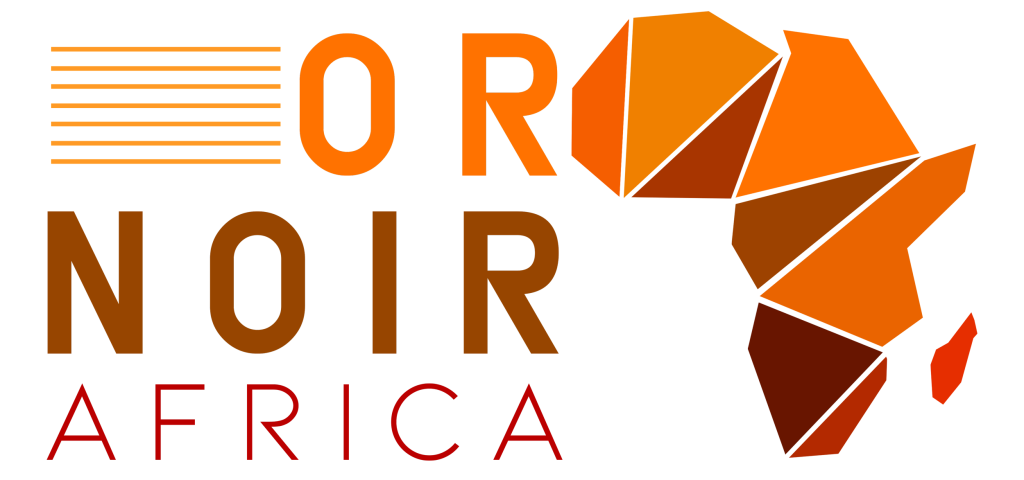A la suite de l’explosion du dépôt pétrolier de Kaloum (Conakry-Guinée), Me DRAMÉ a analysé les enjeux juridiques et judiciaires de cette situation. Par cette article, Il met un focus sur la responsabilité pénale et environnementale des acteurs impliqués (1), la responsabilité des assureurs dans le cadre de l’indemnisation des personnes physiques et morales impactées (2), les éventuelles responsabilités des actionnaires de la société opératrice du dépôt (3), et les difficultés d’exécution des contrats commerciaux (4). Il montre également les possibilités d’un règlement transactionnel entre l’État et la société opératrice du dépôt pour l’abandon des actions pénales et civiles et la mise en place d’un fonds d’indemnisation pour les victimes (5).
Contexte :
Dans la nuit du dimanche 17 au lundi 18 décembre 2023, le dépôt pétrolier de la Société Guinéenne des Pétroles (SGP) situé dans la commune de Kaloum (Conakry – Guinée) a pris feu occasionnant des pertes en vie humaine et des dégâts matériels considérables. Vu la place centrale et stratégique des produits pétroliers dans la vie économique et sociale d’un pays, les activités socio-économiques ont été fortement perturbées en Guinée depuis le lundi dernier.
Sans prétendre aborder l’ensemble des conséquences juridiques et judiciaires de cette explosion, les développements ci-après vont concerner : la responsabilité pénale et environnementale des acteurs impliqués (1) , la responsabilité des assureurs dans le cadre de l’indemnisation des personnes physiques et morales impactées (2), les éventuelles responsabilités des actionnaires de la société opératrice du dépôt pétrolier (3), les difficultés d’exécution des contrats commerciaux (4) et les possibilités de règlement transactionnel entre l’État et la société opératrice du dépôt pour l’indemnisation des victimes et l’abandon des actions pénales et civiles (5).
- Responsabilité pénale et environnementale des acteurs impliqués
Avec les cas de morts enregistrés, de blessés et des dégâts matériels enregistrés, les infractions d’homicide involontaire, blessures involontaires, mise en danger de la vie d’autrui et destruction de biens pourraient être retenues à l’encontre de la société opératrice du dépôt et de ses dirigeants. Les victimes et ayants-droits peuvent directement engager des poursuites pénales ou se constituer partie civile dans le cadre de l’instruction demandée par le Parquet du Tribunal de Première Instance (TPI) de Kaloum.
Sur le plan environnemental avec la pollution de l’air et ses conséquences sur les populations riveraines depuis l’incident ainsi que les allégations d’éventuels préjudices écologiques, l’État et les associations pour la défense de l’environnement ayant cinq (5) ans d’existence légale peuvent engager la responsabilité de la société opératrice du dépôt et de ses dirigeants sur la base des dispositions des articles 165, 166, 193 et 194 du Code de l’Environnement de 2019 et de l’article 1173 à 1179 du Code civil. La compétence juridictionnelle reviendra aux tribunaux civils notamment le TPI de Kaloum (lieu de l’incident et de siège de la société opératrice du dépôt). En conséquence, il est important pour tous les acteurs concernés par cet incident notamment les victimes de se faire accompagner par des avocats-conseils pour la protection de leurs droits et intérêts eu égard aux peines encourues par les personnes poursuivies (6 mois à 5 ans d’emprisonnement) et la réparation des dommages causés.
- Responsabilité des assureurs relative à l’indemnisation des personnes physiques et morales impactées
En matière d’assurance, l’élément fondamental à retenir est la couverture des risques prévues dans le contrat d’assurance liant l’assureur à son client, les exclusions et franchises en matière d’indemnisation. Pour rappel, le Code des assurances prévoit à son article 127, l’obligation pour les sociétés de dépôts pétroliers de prendre une assurance pour leur responsabilité civile vis-à-vis des tiers. Dans le cas d’espèce, l’assureur de la société opératrice du dépôt qui a explosé devra certainement faire face à une multitude de demandes dont le fondement sera analysé en profondeur.
Pour les propriétaires, gestionnaires et/ou locataires de bâtiments de la zone de Kaloum affectés par l’explosion du dépôt pétrolier (ex : dommage aux fenêtres, bris de glace, structure du bâtiment, etc), il convient de noter que s’ils bénéficient d’une assurance multirisque professionnelle ou d’une assurance d’habitation couvrant les situations susmentionnées, ils pourront faire établir des constats d’huissier et soumettre une demande d’indemnisation auprès de leurs assureurs. En cas de difficulté d’indemnisation notamment du rejet de la proposition d’indemnisation de l’assureur, le contentieux relève de la compétence matérielle du tribunal de commerce de Conakry pour les litiges entre l’assureur et l’assuré (commerçant ou non). En outre, les TPI de Conakry peuvent également être saisis si l’assuré est une personne physique ou morale qui n’a pas la qualité de commerçant. Ce contentieux va impliquer entre autres des demandes d’expertises pour l’évaluation des dommages et des montants d’indemnisations.
- Éventuelles responsabilités des actionnaires de la société opératrice du dépôt pétrolier
La société opératrice du dépôt pétrolier de Kaloum qui a pris feu est composée d’actionnaires dont les sièges sociaux sont basés hors de la Guinée et qui sont des compagnies majeures dans l’industrie pétrolière. Ainsi, l’on pourrait s’interroger sur l’éventuelle mise en œuvre de la responsabilité desdits actionnaires. En ce sens, il convient de signaler à titre d’exemple que la loi française n°2017-399 du 27 mars 2017 relative au devoir de vigilance des sociétés mères impose des obligations aux sociétés mères de droit français en matière de prévention des atteintes à l’environnement, à la santé et à la sécurité des personnes afin d’éviter la survenance de dommages s’y rapportant. L’une de ses obligations est l’établissement d’un plan de vigilance pour prévenir les risques susmentionnés. En cas de non-respect de cette obligation, la société mère engage sa responsabilité et elle devra réparer le préjudice que l’exécution de ses obligations aurait permis d’éviter. Cet éventuel contentieux pourrait être traité par les juridictions compétentes du siège social des sociétés mères soumises aux exigences des lois sur le devoir de vigilance.
- Difficultés d’exécution des contrats commerciaux
Avec la fermeture des stations de produits pétroliers pendant les cinq (5) premiers jours de l’incident et les difficultés d’approvisionnement en vue, on pourrait s’interroger sur les risques de litiges liés à l’inexécution ou la mauvaise exécution des contrats commerciaux (ex : transport, énergie, construction, télécoms, etc.). Un contractant qui n’exécuterait pas ses obligations contractuelles à cause du défaut ou la hausse du prix du carburant pourrait-il être poursuivi sur la base des dispositions contractuelles et légales ? La force majeure ou l’imprévision consacrée dans le nouveau Code civil de 2019 (art. 1092) sont-ils des éléments de défense acceptables pour exonérer les parties au contrat de leurs obligations contractuelles ? Les réponses à ces questions dépendront des éléments spécifiques de chaque affaire. Il est donc vivement recommandé aux entreprises qui font face à ces situations de se faire accompagner par leurs avocats-conseils afin de trouver des solutions équilibrées pour l’exécution des contrats commerciaux en cours et limiter les contentieux commerciaux y afférents. Ces derniers seront traités par le tribunal de commerce de Conakry pour la zone de Conakry à défaut d’une clause d’arbitrage ou le choix d’une juridiction étrangère.
- Possibilités d’un règlement transactionnel et la mise en place d’un fonds d’indemnisation les victimes
Vu le nombre important de familles impactées par l’explosion de ce dépôt pétrolier et les risques de mise en œuvre de plusieurs procédures pénales et civiles, l’État et la société opératrice du dépôt avec le soutien de ses actionnaires, pourraient envisager de négocier et signer un accord transactionnel et la mise en place d’un fonds d’indemnisation pour les victimes alimenté par la société opératrice du dépôt. Cette option a été mise en place en Côte d’Ivoire à la suite de l’incident avec le Probo Koala de Trafigura, ainsi qu’en France dans l’affaire du sang contaminé ou aux États-Unis d’Amérique avec « Victim Compensation Fund » du 11 septembre 2001. Toutefois, cette option pose des questions fondamentales et légitimes liées au droit d’accès à la justice et au droit à la réparation, droits prévus et garantis par les instruments juridiques nationaux et internationaux ratifiés par la Guinée. Néanmoins, l’option a pour avantage d’éviter les procédures longues, le défaut de représentation des victimes tout en offrant une forme de sécurité juridique pour l’opérateur privé impliqué dans l’incident.
Par Me Hamidou DRAME
Avocat aux Barreaux de Guinée et Lyon (France)
Associé chez Guilex Avocats
Email : hdrame@guilex-avocats.com
Tel : +224 628 03 54 13


